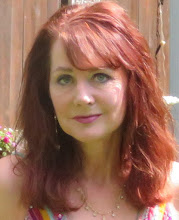99% Chimp
Saw this slogan on the t-shirt of a student at the University of Texas when we were visiting there this fall. It obviously refers to the fact the human DNA and chimpanzee DNA are 99% the same. On some level, this is really scary to me. While I don’t have a problem with being very closely related to other primates, and indeed, all the creatures of our world, there are some disturbing things about our genetic heritage.
I’ve never forgotten a nature show I watched years ago showing a band of male chimpanzees attacking and killing another young male from a neighboring band. It was a chillingly calculated incident and by our criminal justice system would be called first-degree murder. But wait, the defendants say (or would if they were human), it was self-defense, justified killing, or as it’s more commonly referred to by our species—war.
The two bands were fighting over territory, something humans have been doing for millennium. It makes me think that our propensity for violent competition is in our DNA and not something that will easily be overcome. It will take more than a few thousand years of “civilization” for us to evolve into the rationale beings we like to claim we are.
Feeding my gloom about the human race is the history book I’m reading on Ireland (Ireland A History by Thomas Barlett.). Over and over, the history reveals our obsession with dividing the world into “us” and “them”. Even though we share 100% of the same DNA, we often act as if people of another religion, race or cultural outlook are somehow radically different and downright alien from us. We forget all that we share and think of only what divides us. Along this same line, today my writers group was discussing evolution and DNA and several of us mentioned how we’d read recently that scientists now believe that at one time the human species might have gotten down to only 200 living individuals, the rock bottom minimum for us to survive. Think of that. Two hundred people. And every one of us alive is descended from that tiny group. We almost didn’t make it, and unless we evolve a little bit more and learn to work together, it’s still possible we won’t.

